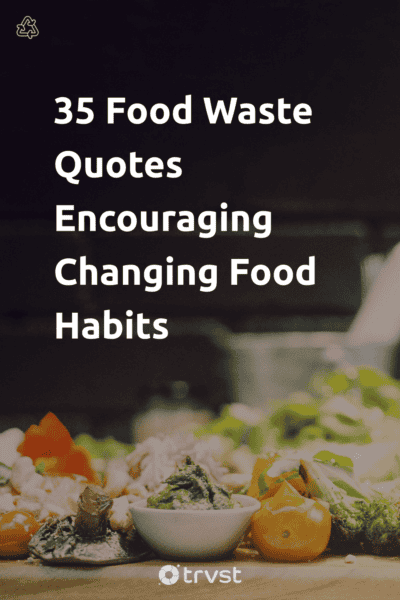35 Food Waste Quotes Encouraging Changing Food Habits
How often do we think of the food scraps we casually throw away daily? With alarming unaccounted amounts, food waste should be addressed for the sake of our planet. This collection of food waste quotes aims to enlighten and inspire better practices. By enhancing our understanding, we can all contribute to solving this pressing issue.
Let's explore these insights from advocates to world leaders and take meaningful steps toward change.
Related Read: Food Waste Facts & Statistics.
Quick links to our selection of food waste quotes:
Best Food Waste Quotes Explaining The Global Issue
Globally, we witness an alarming paradox where millions go hungry, yet food wastage soars. In 2021, global hunger affected 828 million people1, an increase of 150 million since 2019, per FAO's SOFI report.
Concurrently, food wastage remains substantial, with 14% of the world's food lost before reaching shops3 and an additional 17% wasted post-retail2, most of which are from households. This not only undermines food security but also contributes to 8-10% of greenhouse gas emissions.
Reflect on the severity and urgency of this issue as you read the following food waste quotes.
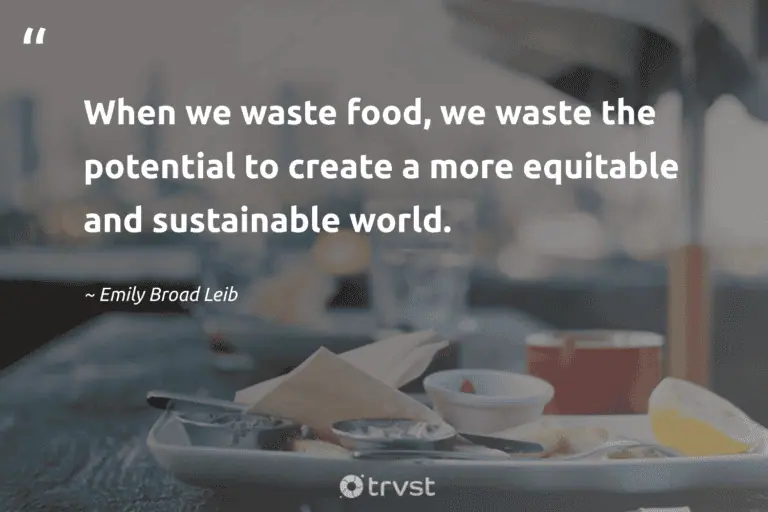
"When we waste food, we waste the potential to create a more equitable and sustainable world."
- Emily Broad Leib
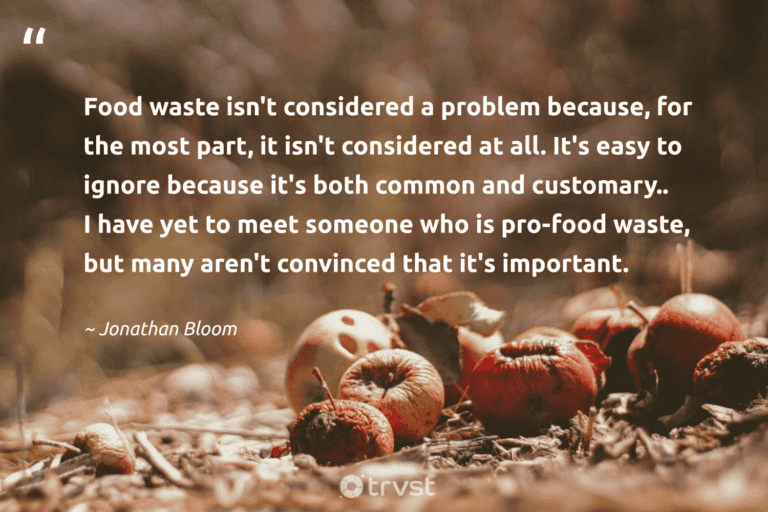
"Food waste isn't considered a problem because, for the most part, it isn't considered at all. It's easy to ignore because it's both common and customary.. I have yet to meet someone who is pro-food waste, but many aren't convinced that it's important."
- Jonathan Bloom
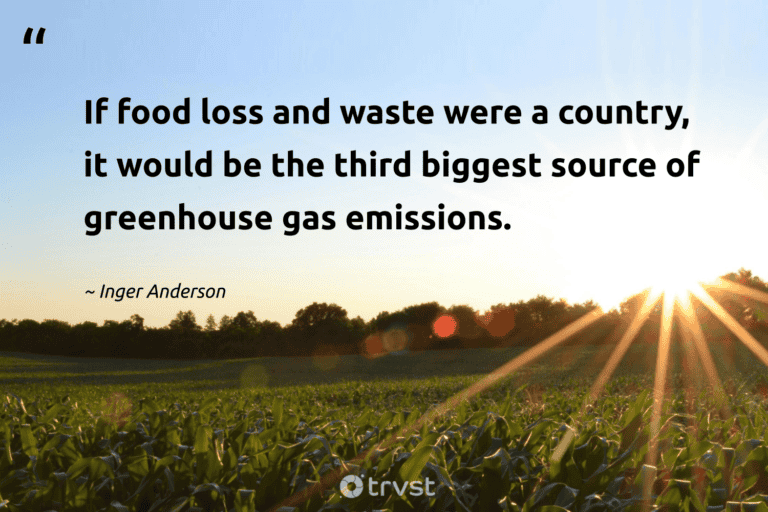
"If food loss and waste were a country, it would be the third biggest source of greenhouse gas emissions."
- Inger Anderson
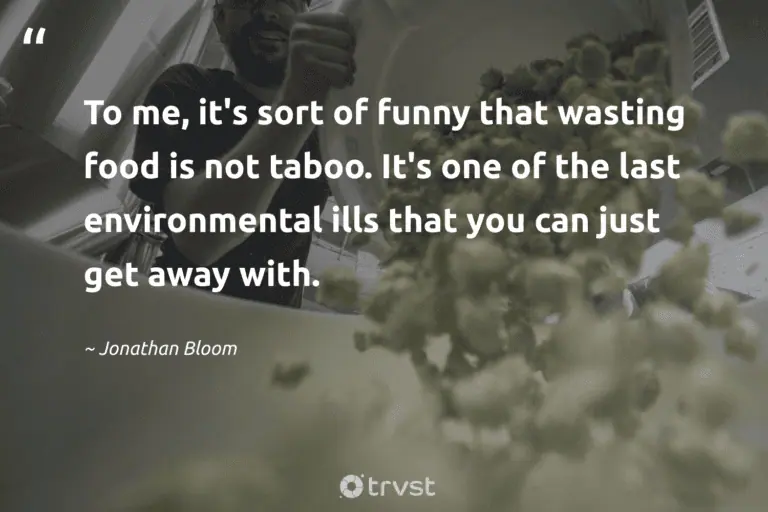
"To me, it's sort of funny that wasting food is not taboo. It's one of the last environmental ills that you can just get away with."
- Jonathan Bloom
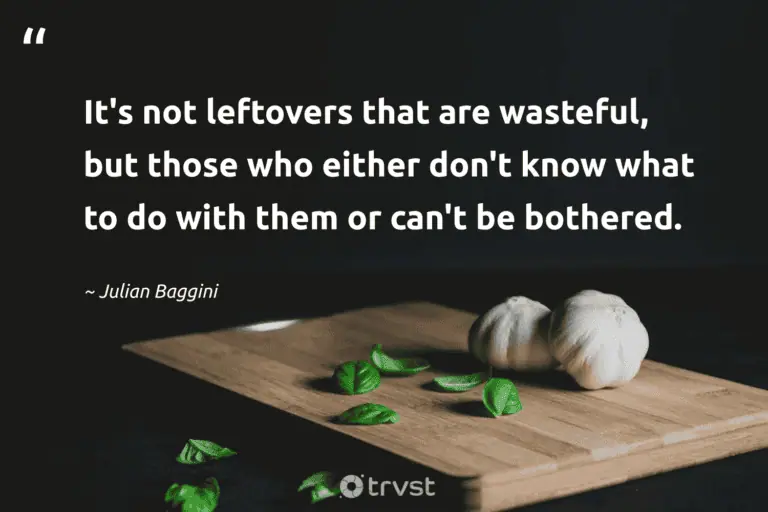
"It's not leftovers that are wasteful, but those who either don't know what to do with them or can't be bothered."
- Julian Baggini
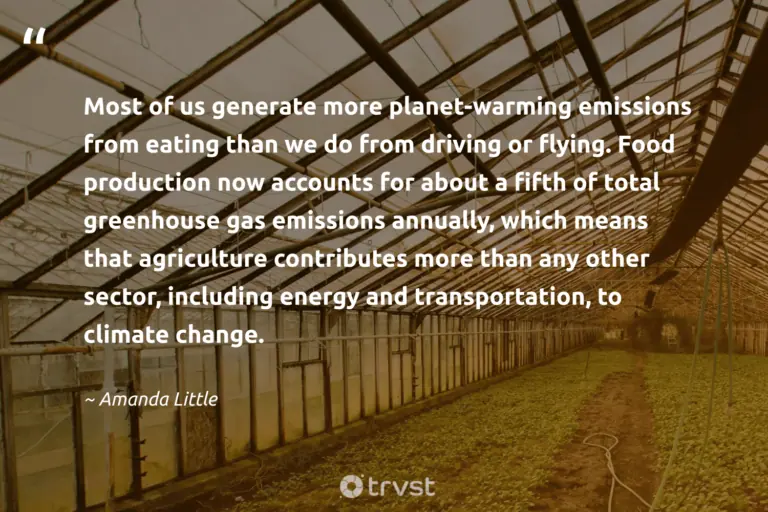
"Most of us generate more planet-warming emissions from eating than we do from driving or flying. Food production now accounts for about a fifth of total greenhouse gas emissions annually, which means that agriculture contributes more than any other sector, including energy and transportation, to climate change."
- Amanda Little
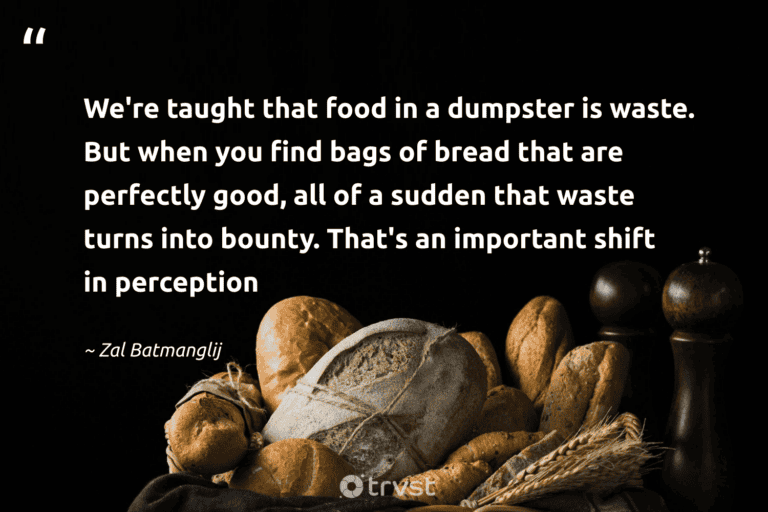
"We're taught that food in a dumpster is waste. But when you find bags of bread that are perfectly good, all of a sudden that waste turns into bounty. That's an important shift in perception"
- Zal Batmanglij
Alarming Quotes On The Food Waste Problem
Food waste stands as a critical issue that directly impacts our environment and society. Dana Gunders, a respected Food & Agriculture Scientist at the Natural Resources Defense Council, illustrates the severity of this problem through a vivid analogy involving grocery shopping.
Likewise, José Graziano da Silva, with his background as the former director general of the Food and Agriculture Organization, highlights a shocking statistic in his speech.
Rethink your consumption habits as you read the other quotes below.
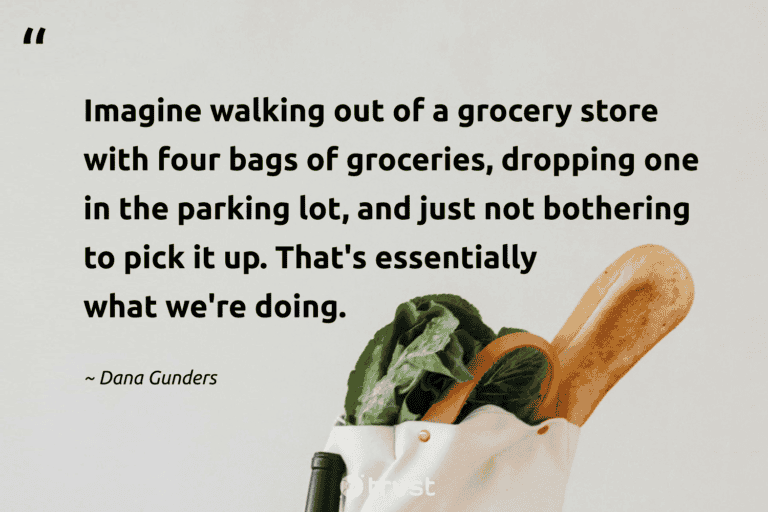
"Imagine walking out of a grocery store with four bags of groceries, dropping one in the parking lot, and just not bothering to pick it up. That's essentially what we're doing."
- Dana Gunders
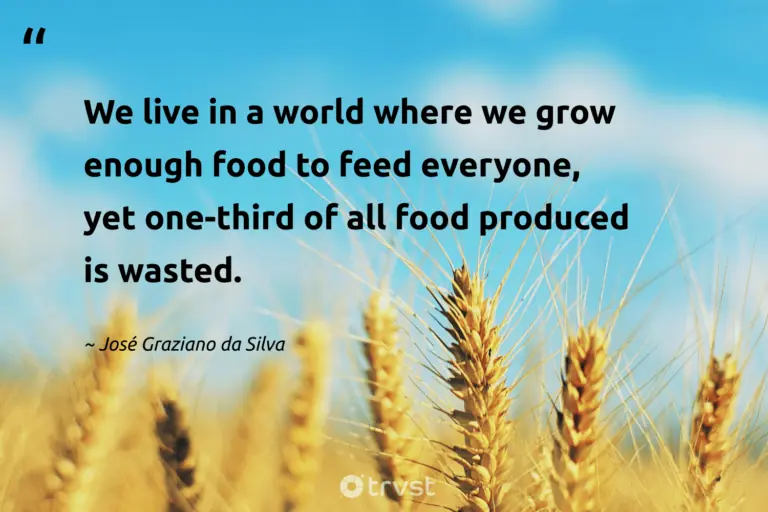
"We live in a world where we grow enough food to feed everyone, yet one-third of all food produced is wasted."
- José Graziano da Silva
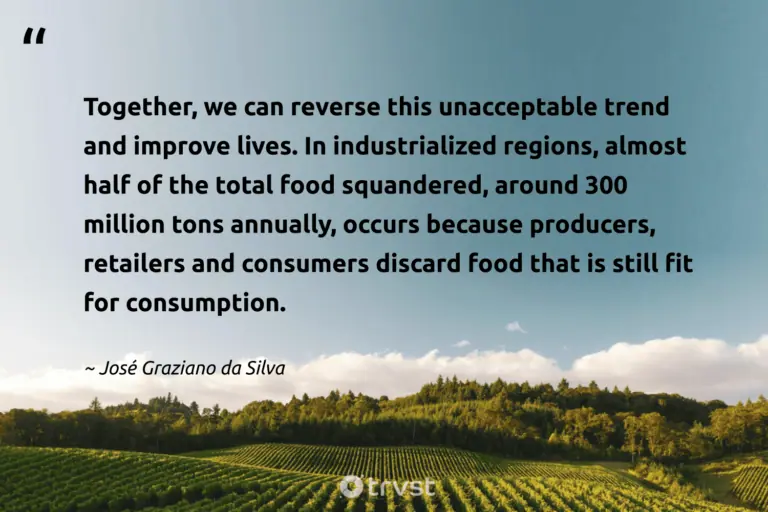
"Together, we can reverse this unacceptable trend and improve lives. In industrialized regions, almost half of the total food squandered, around 300 million tons annually, occurs because producers, retailers and consumers discard food that is still fit for consumption."
- José Graziano da Silva
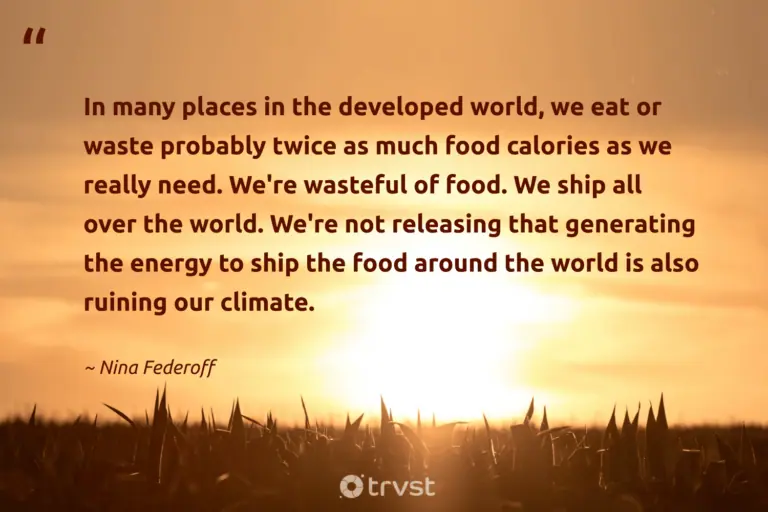
"In many places in the developed world, we eat or waste probably twice as much food calories as we really need. We're wasteful of food. We ship all over the world. We're not releasing that generating the energy to ship the food around the world is also ruining our climate."
- Nina Federoff
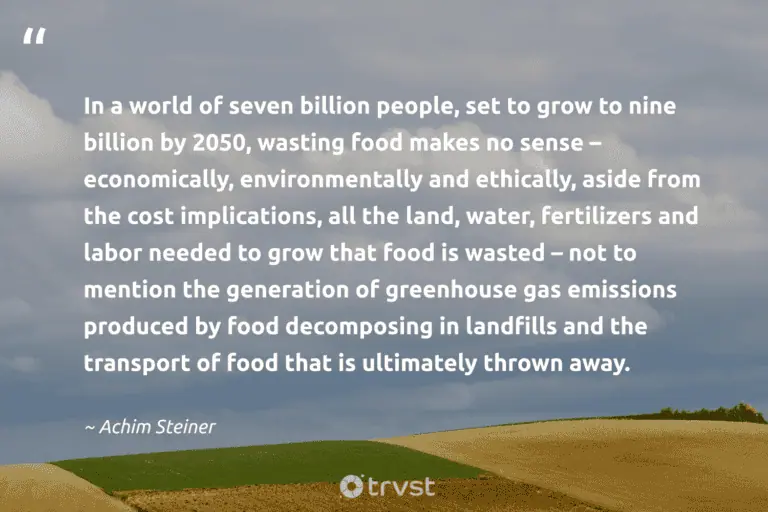
"In a world of seven billion people, set to grow to nine billion by 2050, wasting food makes no sense – economically, environmentally and ethically, aside from the cost implications, all the land, water, fertilizers and labor needed to grow that food is wasted – not to mention the generation of greenhouse gas emissions produced by food decomposing in landfills and the transport of food that is ultimately thrown away."
- Achim Steiner
Reminders To Stop Wasting Food
Making a dent in food waste starts with adopting small but meaningful habits. Firstly, start a garden to ensure a fresh supply of produce right at the back of your house, reducing the usual waste during transportation.
Next, explore the basics of composting. This practice can transform your kitchen scraps into a goldmine for enriching soil. Familiarize yourself with food preservation to keep your food edible for longer periods. Lastly, plan before grocery shopping to cut down on impulse buys, ensuring you only purchase what you need.
Create more conscious choices as you browse through the food waste quotes below, or check out our list of ways to reduce food waste.
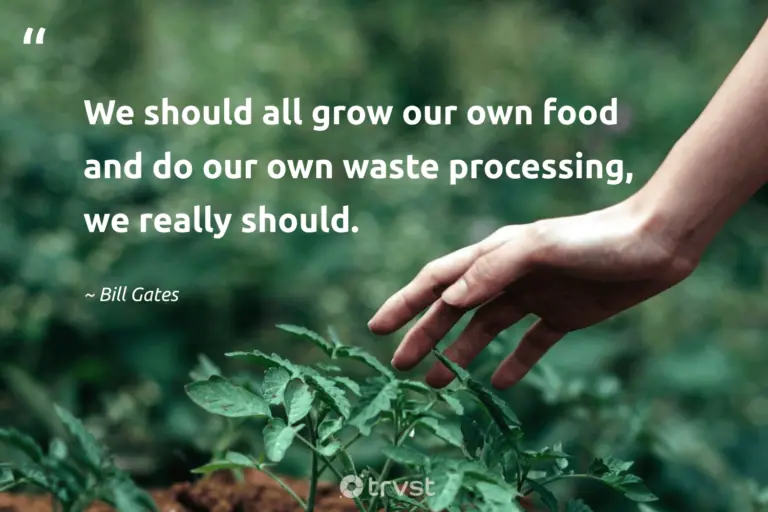
"We should all grow our own food and do our own waste processing, we really should."
- Bill Gates
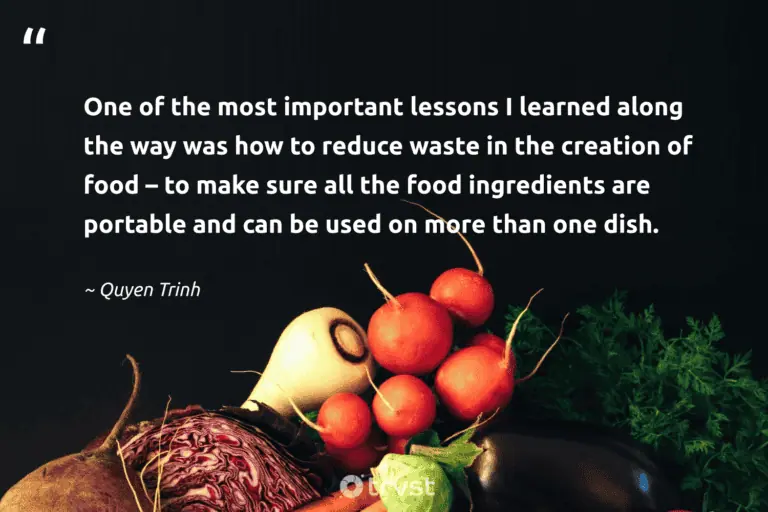
"One of the most important lessons I learned along the way was how to reduce waste in the creation of food – to make sure all the food ingredients are portable and can be used on more than one dish."
- Quyen Trinh
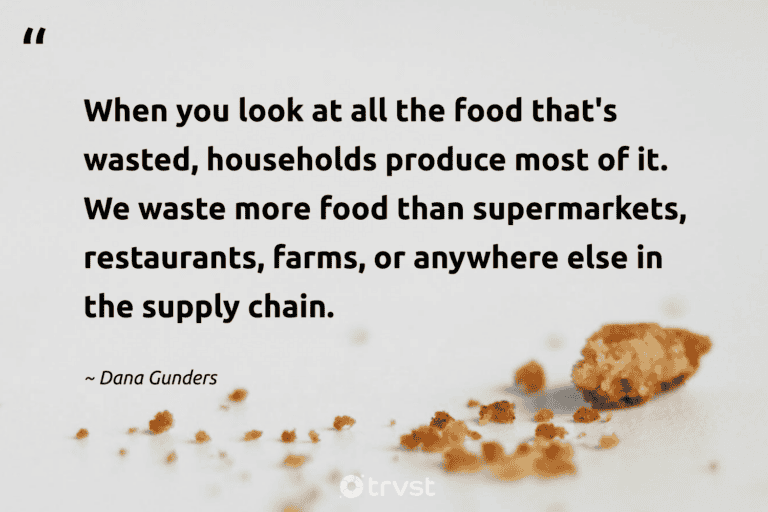
"When you look at all the food that's wasted, households produce most of it. We waste more food than supermarkets, restaurants, farms, or anywhere else in the supply chain."
- Dana Gunders
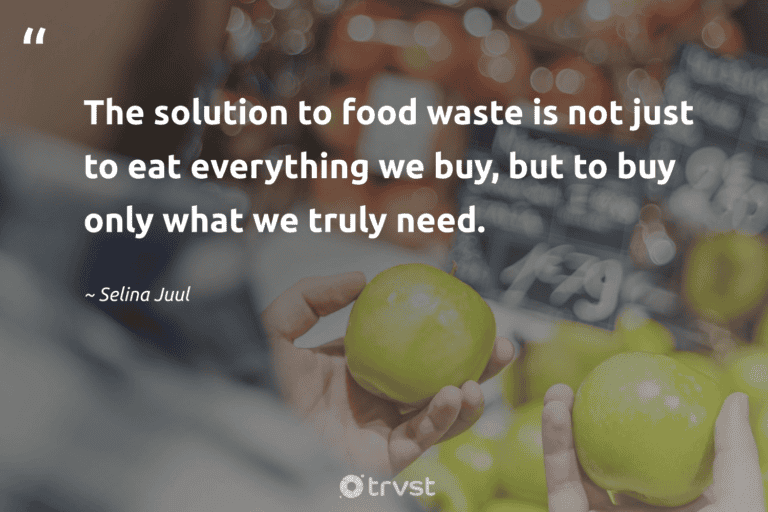
"The solution to food waste is not just to eat everything we buy, but to buy only what we truly need."
- Selina Juul
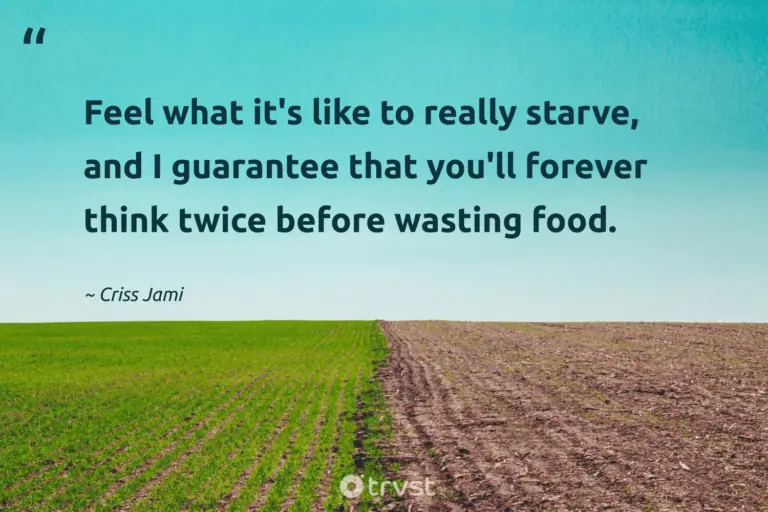
"Feel what it's like to really starve, and I guarantee that you'll forever think twice before wasting food."
- Criss Jami
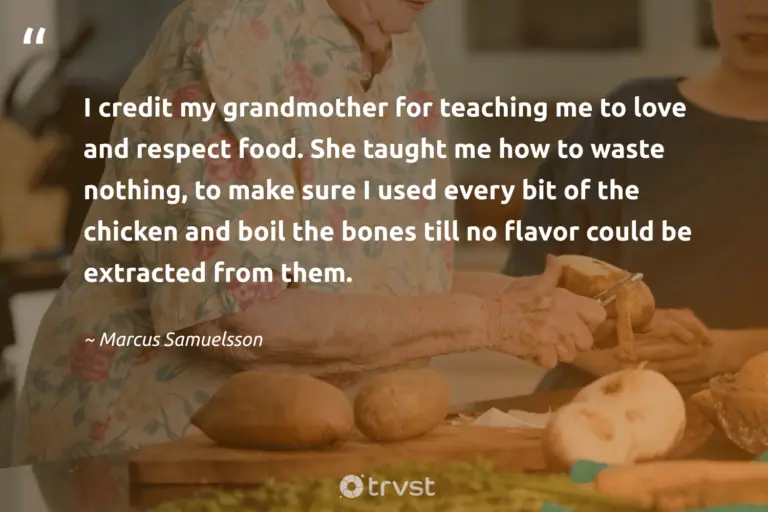
"I credit my grandmother for teaching me to love and respect food. She taught me how to waste nothing, to make sure I used every bit of the chicken and boil the bones till no flavor could be extracted from them."
- Marcus Samuelsson
Food Waste Quotes By Tristram Stuart
Awarded multiple times for his endeavors, Tristram Stuart has advanced the conversation on reducing food waste and combating hunger.
His book Waste: Uncovering the Global Food Scandal highlights how changing food habits and systems is the simplest way to resolve environmental problems.
His 2009 initiative in London, Feeding the 5000, provided meals for thousands using surplus food, drawing significant attention to food waste. This successful model has since expanded worldwide, with support from the European Commission and the United Nations Environment Programme.
Be inspired to be a better advocate against food waste as you read his quotes below.
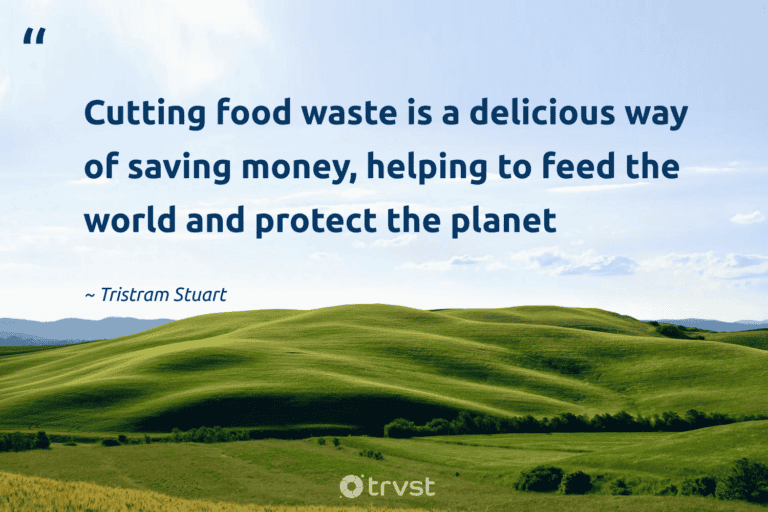
"Cutting food waste is a delicious way of saving money, helping to feed the world and protect the planet"
- Tristram Stuart
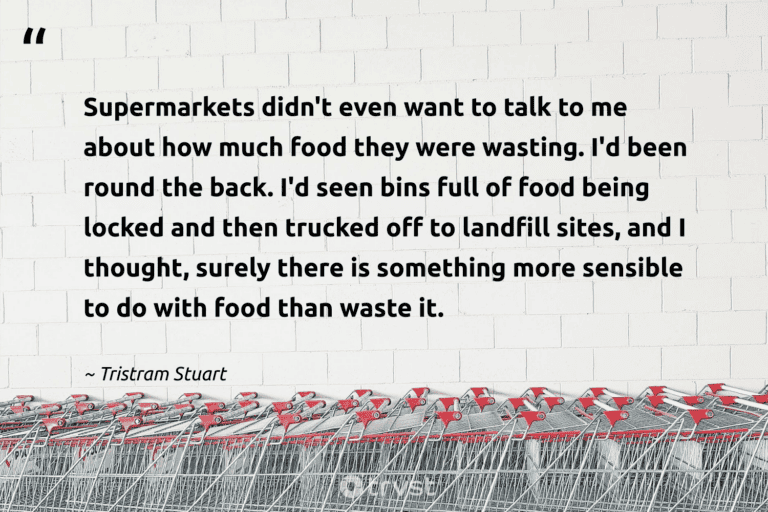
"Supermarkets didn't even want to talk to me about how much food they were wasting. I'd been round the back. I'd seen bins full of food being locked and then trucked off to landfill sites, and I thought, surely there is something more sensible to do with food than waste it."
- Tristram Stuart
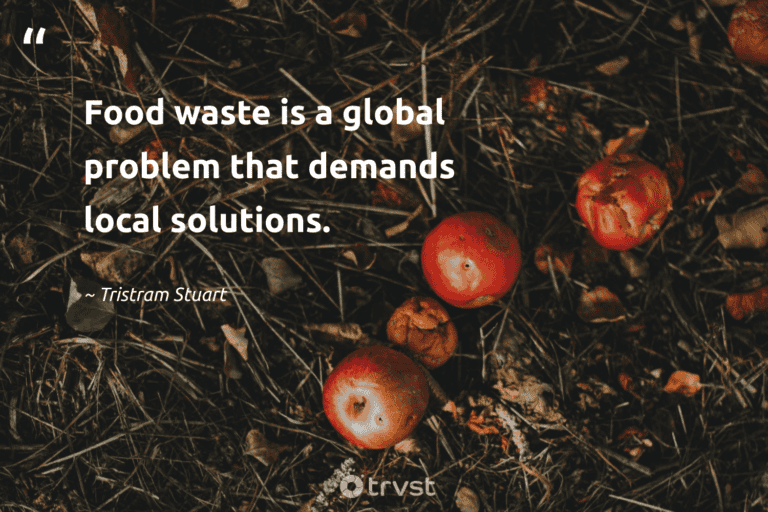
"Food waste is a global problem that demands local solutions."
- Tristram Stuart
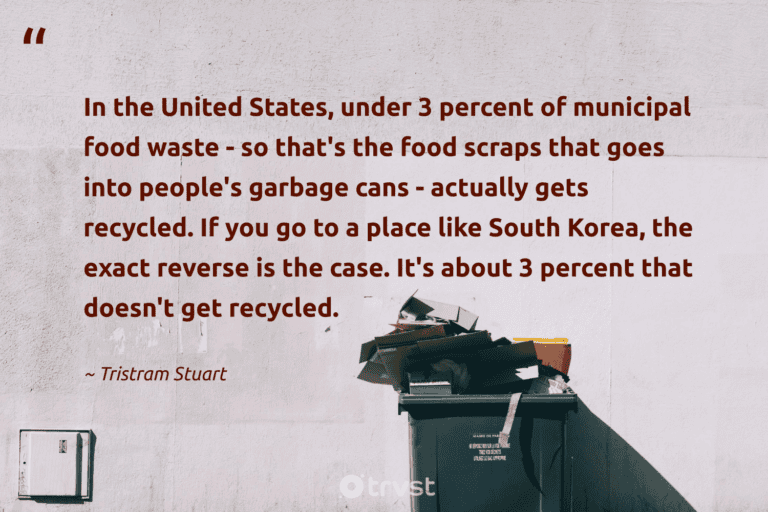
"In the United States, under 3 percent of municipal food waste - so that's the food scraps that goes into people's garbage cans - actually gets recycled. If you go to a place like South Korea, the exact reverse is the case. It's about 3 percent that doesn't get recycled."
- Tristram Stuart
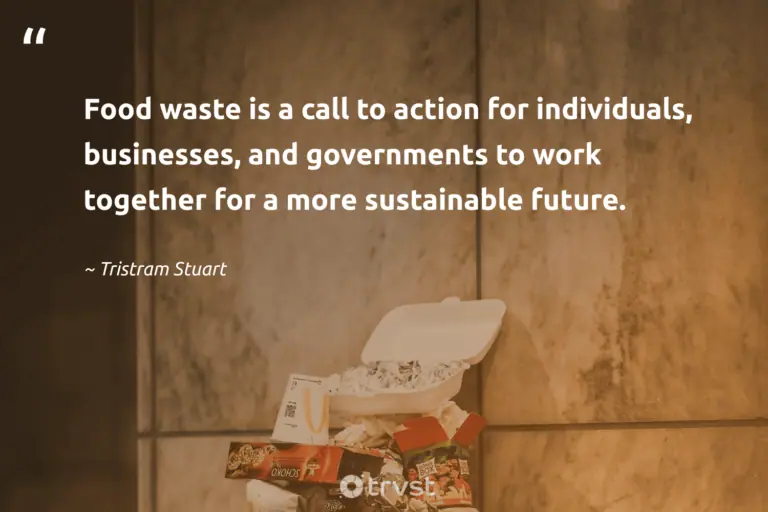
"Food waste is a call to action for individuals, businesses, and governments to work together for a more sustainable future."
- Tristram Stuart
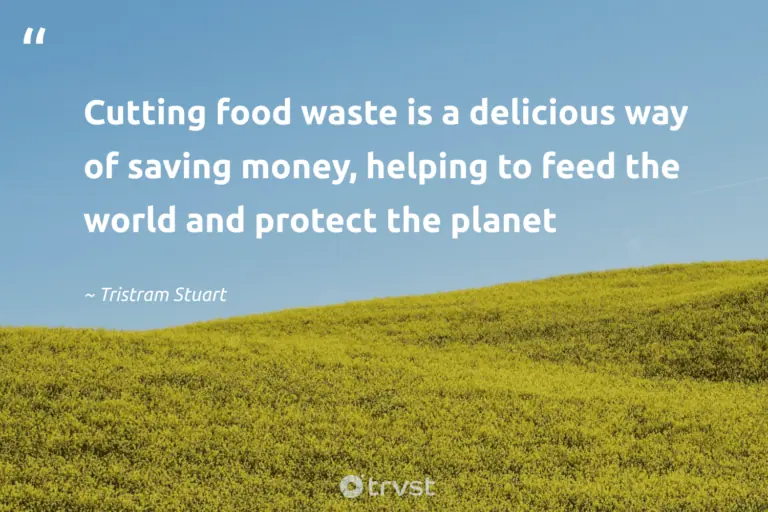
"Cutting food waste is a delicious way of saving money, helping to feed the world and protect the planet"
- Tristram Stuart
Short Food Waste Caption To Post Online
Social media doesn't just entertain; it educates and inspires. In the sea of cooking videos and eating broadcasts, supporting content creators who tackle food waste tells the algorithm how vital the issue is.
From teaching composting techniques to promoting gardening, these types of content creators offer vital tips. If you have something to contribute, you should join in, too! Share your tips on reducing food waste with the rest of the quotes below.
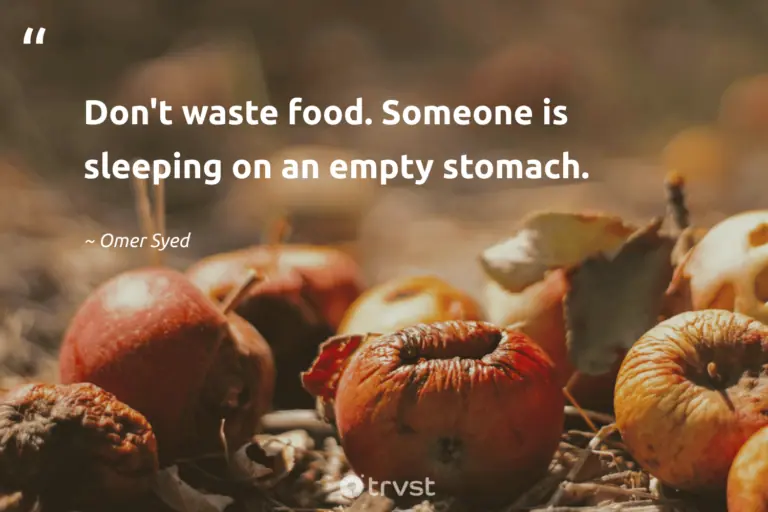
"Don't waste food. Someone is sleeping on an empty stomach."
- Omer Syed
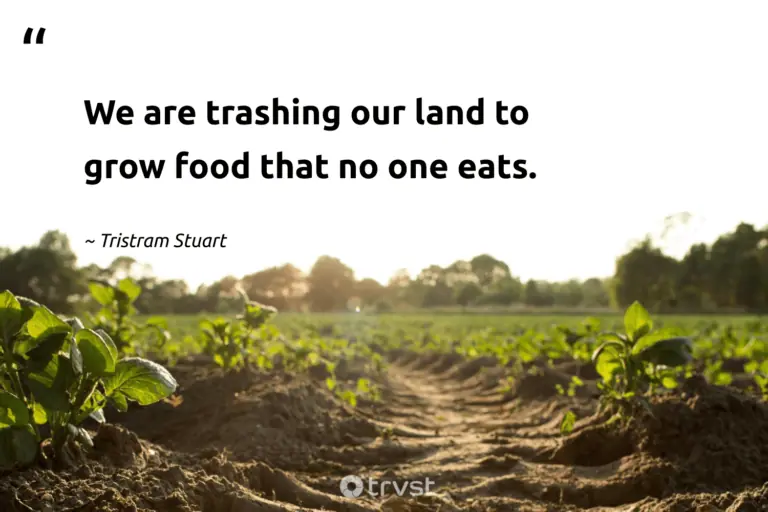
"We are trashing our land to grow food that no one eats."
- Tristram Stuart
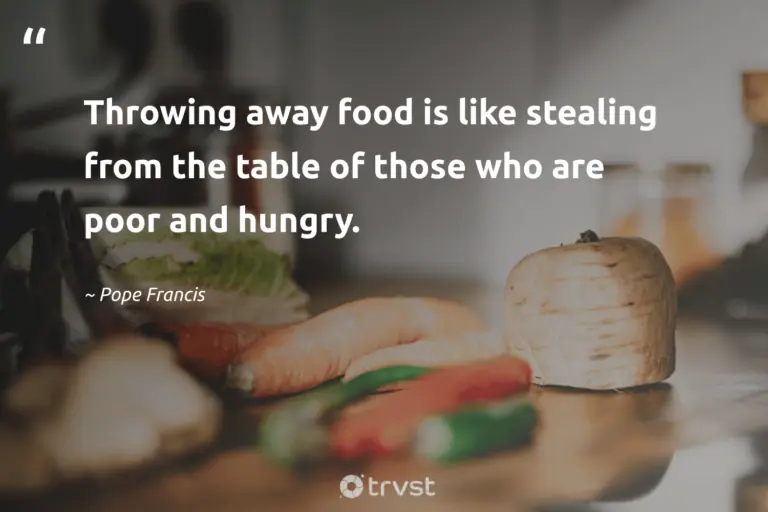
"Throwing away food is like stealing from the table of those who are poor and hungry."
- Pope Francis
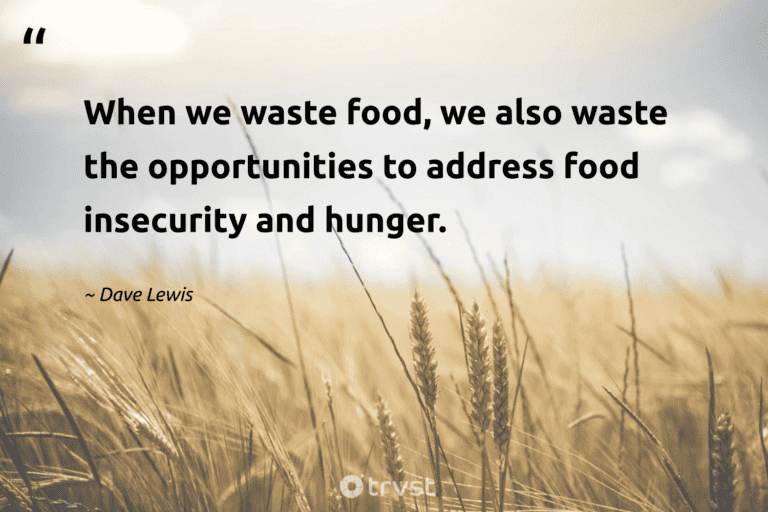
"When we waste food, we also waste the opportunities to address food insecurity and hunger."
- Dave Lewis
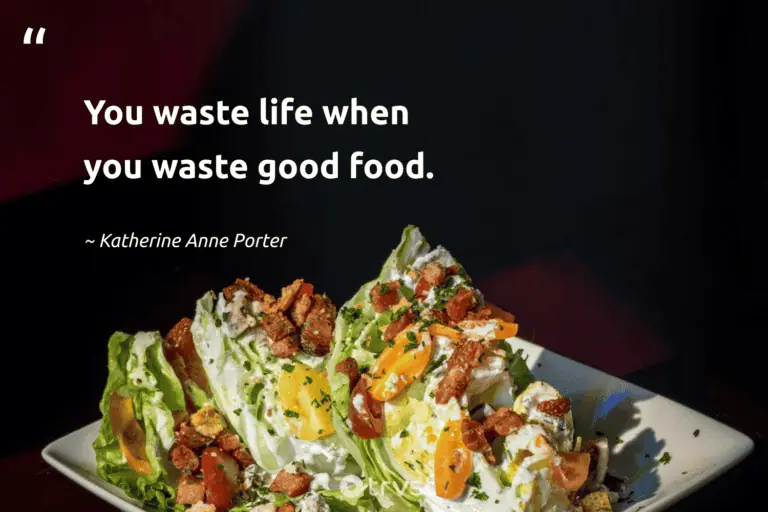
"You waste life when you waste good food."
- Katherine Anne Porter
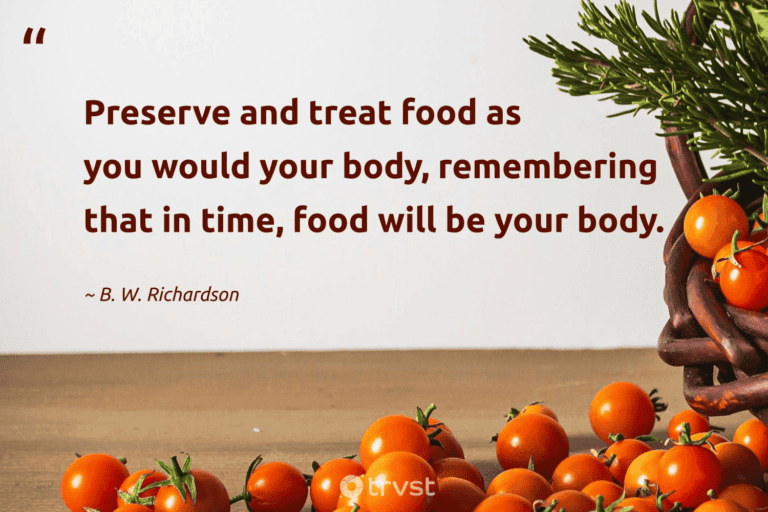
"Preserve and treat food as you would your body, remembering that in time, food will be your body."
- B. W. Richardson
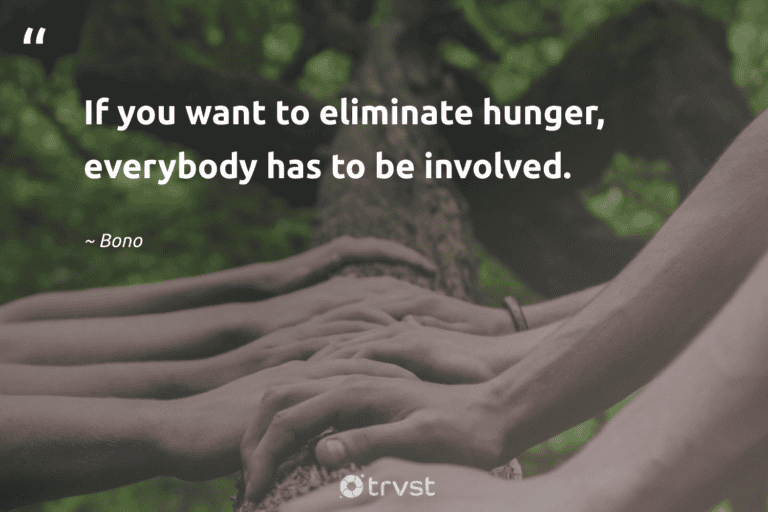
"If you want to eliminate hunger, everybody has to be involved."
- Bono
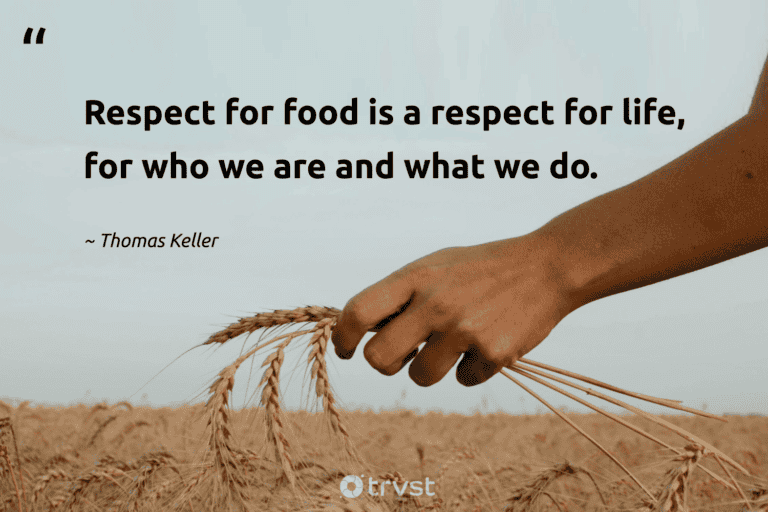
"Respect for food is a respect for life, for who we are and what we do."
- Thomas Keller
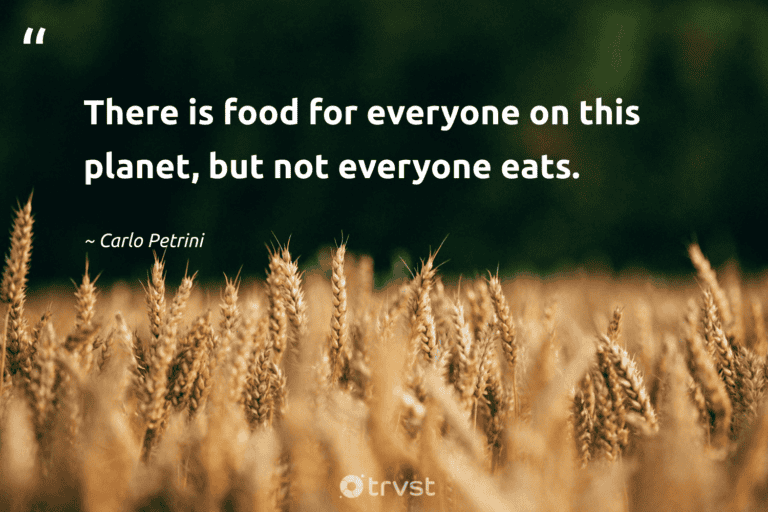
"There is food for everyone on this planet, but not everyone eats."
- Carlo Petrini
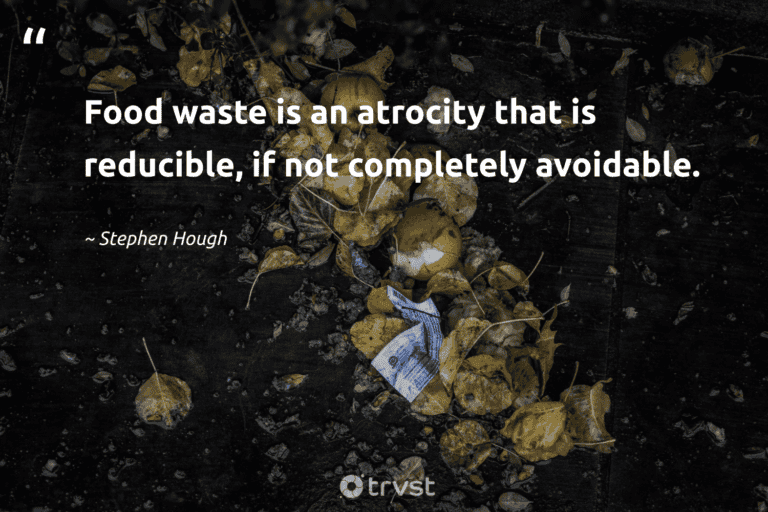
"Food waste is an atrocity that is reducible, if not completely avoidable."
- Stephen Hough
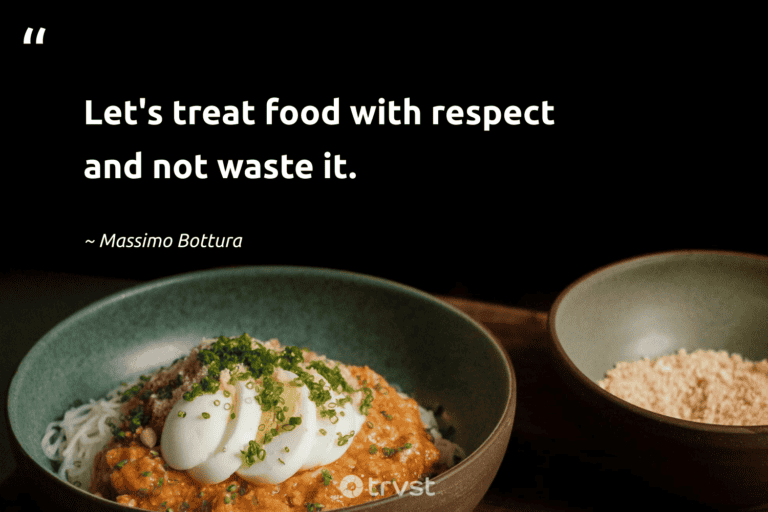
"Let's treat food with respect and not waste it."
- Massimo Bottura
| 1 | FAO, IFAD, UNICEF, WFP and WHO. 2022. The State of Food Security and Nutrition in the World 2022. Repurposing food and agricultural policies to make healthy diets more affordable. Rome, FAO. |
| 2 | United Nations Environment Programme (2021). Food Waste Index Report 2021. Nairobi. |
| 3 | FAO. 2019. The State of Food and Agriculture 2019. Moving forward on food loss and waste reduction. Rome. Licence: CC BY-NC-SA 3.0 IGO. |
Isabela is a determined millennial passionate about continuously seeking out ways to make an impact. With a bachelor of science degree in civil engineering with honors, Isabela’s research expertise and interest in artistic works, coupled with a creative mindset, offers readers a fresh take on different environmental, social, and personal development topics.

